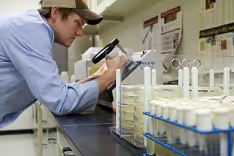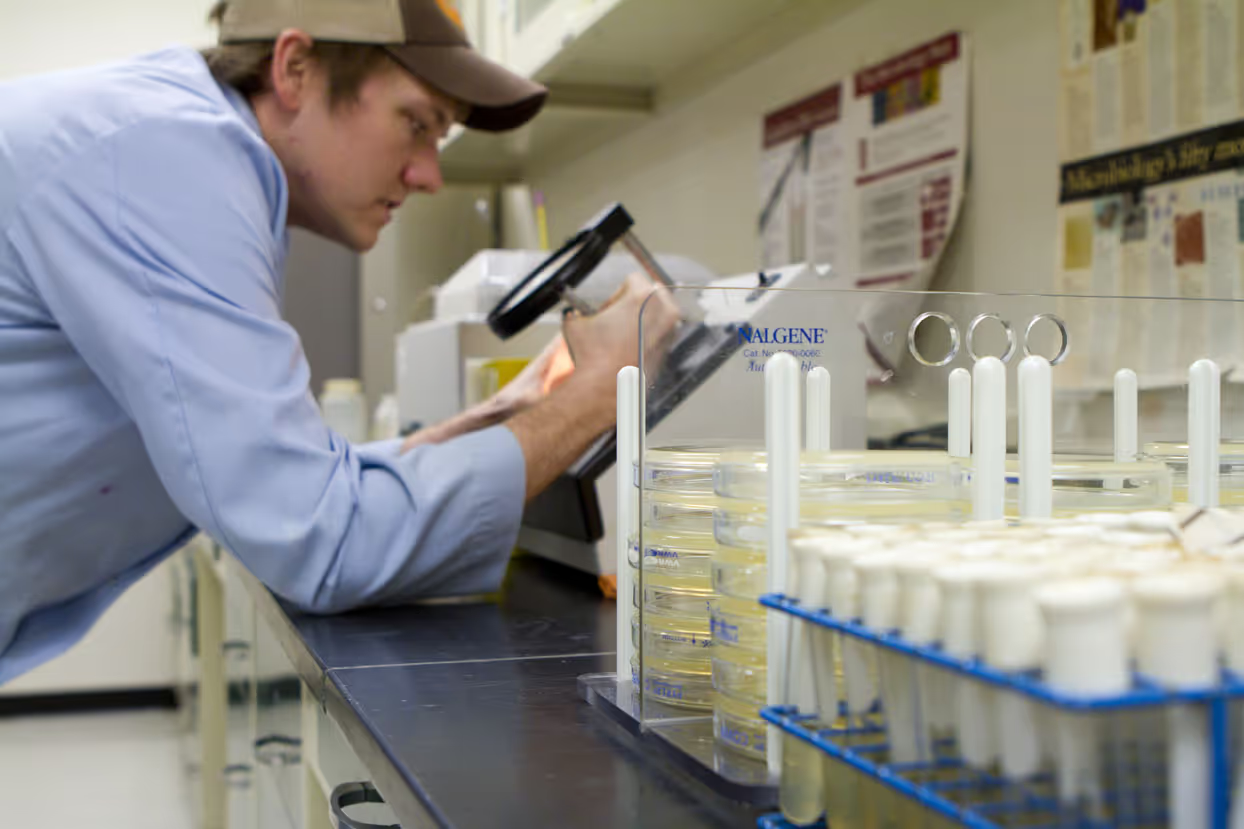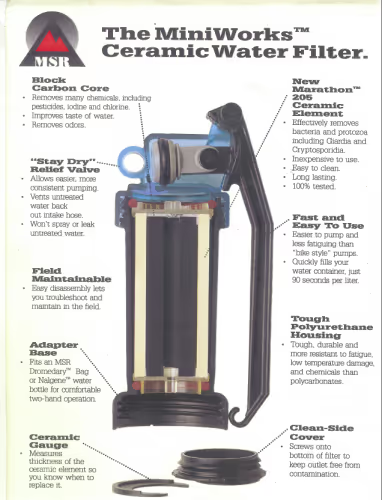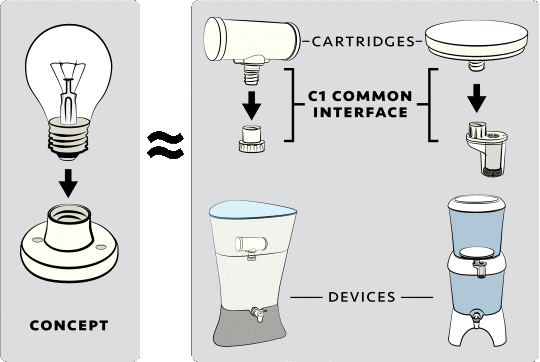MSR’s Deep Legacy of Water Treatment Innovation

As MSR develops a next-generation water purifier for households in developing countries, it leans on its decades of commitment to water treatment innovation.
MSR’s Global Health team is on the verge of creating a water purifier that could safely and easily deliver drinking water to households in developing countries. The promising technology is an exciting leap in global health innovation. Yet it’s just the latest milestone in MSR’s deep commitment to advancing water treatment methods for users around the world. Here’s a look at how MSR’s efforts grew from outdoor products to global health technologies.

1990s: MSR revolutionises ceramic water filter technologies
By 1990, MSR had already established itself as a trusted manufacturer of high-quality, rigorously tested gear for outdoor adventurers. Seeking to develop a better water filter for backpackers, MSR began researching water filtration technologies.
MSR knew ceramic offered great performance benefits. But the traditional method of producing ceramic filters was cost prohibitive. With a little ingenuity, the team began researching extruding ceramics—a process that would greatly reduce the cost.

After several years and to the surprise of industry skeptics, MSR created a high-performance, reliable extruded ceramic filter. MSR patented this filter under “Marathon Ceramics” and used it in its new MiniWorks water filter. Today, the MiniWorks device is still celebrated by outdoor adventurers for its performance. In 1998, MSR’s filter was recognized by the American Ceramics Society as one of the “most important ceramics innovations of the century.”
2000s: MSR begins innovating for developing countries
As MSR continued to work with extruded ceramics, the team realised the process allowed for various-sized filter tubes. Combined with its low cost, this meant extruded ceramic was a viable solution for many applications—including for use in developing countries. Excited that their technologies could create positive change, MSR expanded its company mission statement to include: “provide affordable first-world-quality water to people in developing countries.”
MSR’s initial global health product was simple. It placed a hose at the end of a Marathon Ceramic filter, creating a siphon-like water filter for low-income households. Called the e-Water, it successfully provided 300 people in Sudan with water for several months in the spring of 2000. But the design ultimately proved too fragile to ship routinely and was shelved, forever awaiting a redesign.
Still, MSR’s reputation as an R&;D facility was growing. In April 2000, MSR signed a two-year contract with the U.S. Defense Advanced Research Projects Agency (DARPA) to research ceramic’s ability to remove viruses. With its microbiology lab, MSR had the capabilities.
MSR also hired principal scientist Tim Oriard, who brought with him a passion for global health work. Under his leadership, the lab team continued to research ways to adapt MSR’s outdoor technologies for low-cost global health applications.
2008: Global health organizations take notice
In 2008, PATH, a leader in global health innovation, launched the Safe Water Project. Funded by the Bill &; Melinda Gates Foundation, the project sought to better understand the role that commercial markets could play in bringing safe water to low-income communities through affordable household water treatment and storage (HWTS) products.
Results from their research showed numerous challenges with existing HWTS products. Aware of MSR’s strong technical expertise, PATH partnered with MSR to explore innovative and effective options.
MSR’s promising household water purifier
Combining MSR’s water filtration expertise with PATH’s user-centered design and market knowledge, the two co-developed a simple and revolutionary solution that addressed many of the product challenges limiting families’ ability to safely treat water.

This solution is called the C1 Common Interface - the common connection point at the heart of PATH’s open-platform next-generation water filters (see figure on the left).
This C1 Interface allows users to purchase the water filter separate from the storage container, using an open source “light bulb and socket” concept. This improves choices for families, who can decide to upgrade their filter technology when income allows.
In addition, the C1 is easy assembled and includes safeguards to prevent errors such as upside-down cartridge installation. Today, several manufacturers have designed commercial products around the C1 Interface.
PATH also commissioned MSR to explore the first low-cost household purifier system that reliably removes viruses. The MSR team knew ceramics would provide the ideal filtration technology. But they needed a purifying agent that added viral defense. And they wanted their purifier to use the C1 Interface for its ease of use. MSR was able to create beta prototype with support from PATH, and continued to refine the purifier beyond the funded grant.
Now the team is close to making the purifier a reality. Recognizing its potential, the Humanitarian Innovation Fund awarded the project a grant to advance the design of the system for field-testing.
Stay tuned! In our next article, we’ll dive deeper into the exciting technology of this new purifier for household water treatment.
Stay updated
Sign up for our newsletter to receive regular updates on resources, news, and insights like this. Don’t miss out on important information that can help you stay informed and engaged.
Related articles


.png)
Explore Elrha
Learn more about our mission, the organisations we support, and the resources we provide to drive research and innovation in humanitarian response.